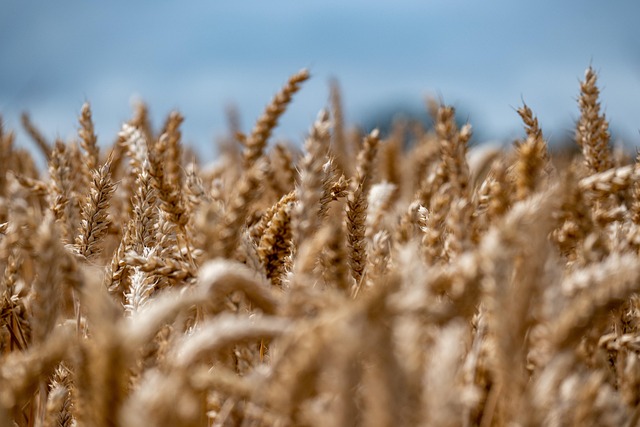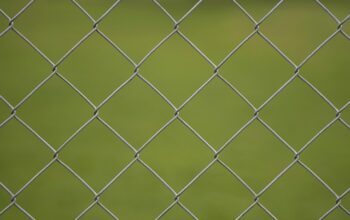Livestock panels are ideal for Ontario farm fencing due to their durability, versatility, and low maintenance. Crafted from steel or aluminium, they offer robust protection with adequate airflow, suitable for various livestock needs. Their modular design facilitates easy installation and reconfiguration, while lightweight construction allows for manageable movement. These panels withstand harsh weather, promoting sustainability and saving farmers time/money on repairs, making them a top choice for farm fencing solutions. Select the right material based on budget, environment, and specific farm requirements, and ensure long-term fence longevity through proper maintenance.
Livestock panels offer a versatile and durable solution for fencing in Ontario. This article explores how these innovative panels can enhance your farm’s infrastructure, providing both functionality and aesthetic appeal. We’ll delve into the advantages of livestock panels over traditional fencing, guide you through choosing the right materials, and offer essential installation and maintenance tips to ensure your new farm fence stands the test of time.
- Farm Fence: A Durable Solution for Ontario Farms
- Advantages of Livestock Panels for Fencing
- Choosing the Right Material for Your Farm Fence
- Installation and Maintenance Tips for Farm Fencing
Farm Fence: A Durable Solution for Ontario Farms
Livestock panels offer a durable and versatile solution for farm fencing in Ontario. These panels are designed to withstand the rigours of outdoor use, providing a strong barrier that keeps livestock contained while allowing for adequate airflow and visibility. Made from high-quality materials like steel or aluminium, they are built to last through harsh weather conditions and frequent handling.
Compared to traditional fencing options, livestock panels provide several advantages. They require less maintenance, as there’s no need for regular painting or repairs. The modular design makes them easy to install, remove, or reconfigure as needed, accommodating changes in farm layout or animal management strategies. Furthermore, their lightweight yet sturdy construction allows farmers to manage and move them with relative ease.
Advantages of Livestock Panels for Fencing
Livestock panels offer a versatile and durable solution for farm fencing, catering to various needs across Ontario’s agricultural landscape. One of their key advantages is adaptability—these panels can be easily adjusted to accommodate different livestock sizes and requirements. Whether it’s fencing off a chicken coop, creating boundaries for grazing sheep, or dividing sections for diverse animal species, the adjustability of livestock panels ensures optimal space management.
Furthermore, these panels are designed to withstand harsh weather conditions commonly experienced in Ontario, making them a reliable long-term investment for farmers. Their robust construction prevents damage from persistent winds and heavy snowfall, ensuring the fence remains intact and secure. This durability not only saves farmers time and money on frequent repairs but also contributes to the overall sustainability of farm operations by reducing waste.
Choosing the Right Material for Your Farm Fence
When selecting materials for your Ontario farm’s fencing, consider the unique needs and challenges of your operation. Livestock panels, a popular choice, offer both strength and flexibility. They are designed to withstand harsh weather conditions while providing adequate protection for livestock. These panels can be made from various materials, each with its pros and cons; choose one that aligns with your budget and environmental considerations.
Metal is a common option, known for its durability and longevity, making it ideal for high-traffic areas or where strength is paramount. Alternatively, wood panels offer a more natural aesthetic appeal but require regular maintenance to resist rot and pests. Vinyl fencing is another low-maintenance choice, suitable for those seeking an aesthetically pleasing, long-lasting solution that won’t rust or rot.
Installation and Maintenance Tips for Farm Fencing
When installing livestock panels, ensure a solid foundation by preparing a level surface and properly anchoring the posts. Use high-quality materials to prevent rusting or degradation over time. Regular maintenance involves inspecting panels for any signs of damage or wear and replacing faulty components promptly. Cleaning the fence line with a mild detergent can help maintain its aesthetic appeal.
To keep your farm fence effective, regularly check for loose connections, sharpened or broken wires, and secure all joints. Seasonal weather changes require specific attention; during winter, consider adding insulation to protect against frost damage, while summer’s heat might necessitate cleaning to prevent debris buildup. Regular maintenance not only extends the life of your livestock panels but also ensures the safety and well-being of your animals.
Livestock panels offer a versatile and durable solution for farmers in Ontario, providing both efficiency and functionality. By choosing the right materials and ensuring proper installation and maintenance, these fences can enhance any farm operation, improving animal management while contributing to the overall sustainability of agricultural practices. A well-maintained farm fence is an investment that pays dividends in terms of productivity and peace of mind.




